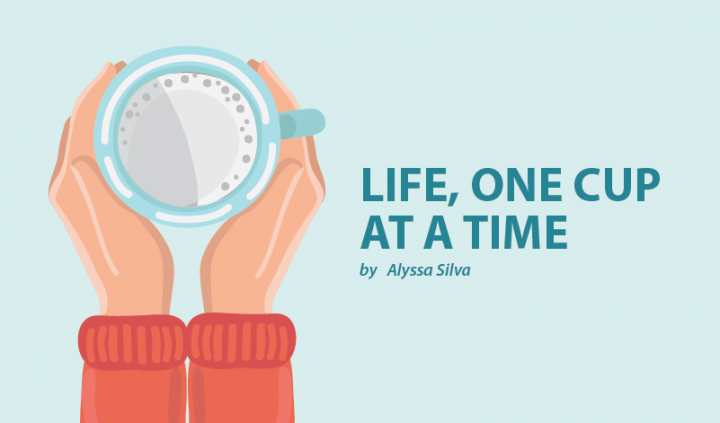Honest Conversations Can Lead to More Acceptance

While catching up with a friend recently, I stumbled upon the next topic for this column. It was simple, really. There was no aha moment or life-changing revelation in the conversations we had, but something stuck with me that day. To many, the significance of the conversation could have been overlooked, but to me, it spoke volumes to something I’ve always struggled with as a person with a disability.
He and I had been discussing how we first met four years ago. It was your average, digital age story. I had posted something on Facebook in regards to a documentary I was filming about my life with SMA, and through a friend of a friend who shared the post, he discovered me and sent me a message.
As we reminisced, we both chuckled at the story of how we first met. Facebook does have its perks, I guess. Weeks after that initial exchange, we found ourselves at the same coffee shop. He was with his daughter and I was with my personal care assistant who happened to know him. While this may sound like an opportunity for me to throw in one of those “small world” phrases, small-town life is predictable like that. All people here connect by two degrees of separation, and it’s both refreshing and unnerving to live in a community like this.
Together, we recounted the day at the coffee shop and all the other ones that built the foundation of our friendship. It was then when he spoke the words that resonated with me. Admittedly, he was embarrassed to share this with me knowing, in hindsight, how ignorant he had been. That’s when he said, “When I first learned of you, I saw the wheelchair before anything else.”
I nodded in agreement as he continued to explain how he had created this preconceived notion that because I was disabled, there wasn’t much I could do with my life. I could tell he was almost ashamed for thinking this way, but I chose to respond with understanding and respect for him choosing to share that with me. Truthfully, I have experienced this throughout my entire life.
Whether we choose to admit it or not, we’ve all been at fault for judging others to some degree. Even as someone on the receiving end of a person’s misjudgments, I’m at fault of this from time to time. I’m not sure why we’re programmed to believe we are entitled to judge others and feel rigid in these ideas that we create. And while I’m becoming more focused on being gentler with others, I understand that this still happens. I understand that, unfortunately, stereotypes do exist, and always will in some capacity.
I conveyed all of this to my friend and thanked him for being so honest. It’s not so much the preconceived notions people create about me that I struggle with most — it’s about what happens next. In all conversations, I put my best self, the truest Alyssa Silva at her core, forward because people are quick to jump to conclusions. And, if nothing changes, if people continue to treat me as if I’m beneath them because of my disability, I grow frustrated. I grow tired and hurt when I work so hard at breaking down the stigmas that exist today for people with disabilities. This feeling used to boil inside of me until one day I realized that, regardless of what others think, I never will be a product of their misjudgment. From that moment forward, I chose to cherish those who accepted me and forgive those who rejected me.
Fortunately, my friend accepted me for who I was and never looked back. Half-jokingly, I asked why he had a change in heart, and his response was never more accurate to who the real Alyssa Silva is.
He laughed and said, “I remember you gave your dad the biggest eye roll one day, and I thought, ‘Wait. This girl seems pretty sassy. We’re going to get along just fine.’”
***
Note: SMA News Today is strictly a news and information website about the disease. It does not provide medical advice, diagnosis, or treatment. This content is not intended to be a substitute for professional medical advice, diagnosis, or treatment. Always seek the advice of your physician or other qualified health provider with any questions you may have regarding a medical condition. Never disregard professional medical advice or delay in seeking it because of something you have read on this website. The opinions expressed in this column are not those of SMA News Today, or its parent company, Bionews Services, and are intended to spark discussion about issues pertaining to spinal muscular atrophy.









Leave a comment
Fill in the required fields to post. Your email address will not be published.